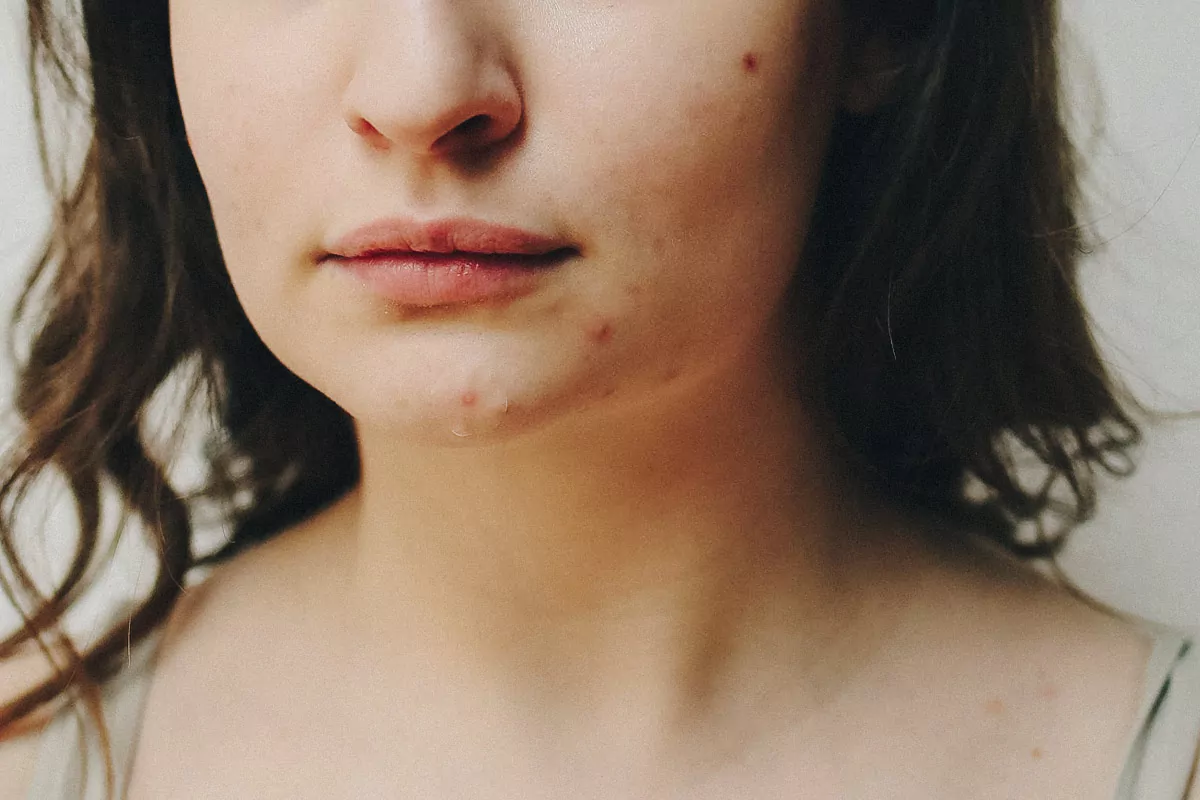
Get rid of your skin problems with food.
These natural ingredients can be key ingredients in your skincare routine. Many spices are rich in antioxidants and anti-inflammatory substances, providing the nutrients your hair and skin need to be healthy.
Continue reading to find out how herbs and spices can help reduce wrinkles, soothe redness and keep your skin glowing.
Calm Beard Burn with Chamomile
A man with a sexy five-o’clock shadow is hard to resist. However, beard burn can occur when you have reddening, flaking, itching, and other irritations around your mouth, chin, and cheeks. Nature’s most soothing herb leaf can quickly heal damaged skin. Jessica Wu, MD, clinical associate professor of dermatology at the University of Southern California medical college, says that Chamomile, nature’s most soothing herbal leaf, is an anti-inflammatory with the ability to reduce redness and itching.
For beard burn treatment, steep a chamomile leaf in boiling water for 2 to 3 minutes. The anti-inflammatory enzymes will then release. Apply the tea bag directly to any red or irritated areas on your face.
For a Glowing Complexion, Cinnamon
Cinnamon can spice up hot beverages and cookies but also contains antioxidants that protect skin from damage. Keri Glassman (nutritionist and author of The O 2 Diet) says cinnamon has more antioxidant value than half a cup of blueberries. Sprinkle half a teaspoon of cinnamon on your coffee before you brew for an easy antioxidant boost.
Glassman suggests that you discard any bottles older than two years. Also, keep spices in the dark, as heat from the stove or sunlight can decrease their potency.
Garlic for Healthy Hair
Garlic can kill your breath, but it is a lifesaver for thin hair. To grow thick and healthy hair, your hair follicle requires nutrients. Your hair will suffer if you don’t eat the proper nutrients. According to Dr. Wu, foods high in cysteine (an amino acid found within garlic) can help revitalize your hair’s follicles. She explains that cysteine molecules are linked in intense sequences of the disulfide bond, which gives hair strength.
Green Tea for Sun Protection
Another reason to drink Green is Green Tea. It contains a high amount of catechins with potent anti-inflammatory, antioxidant, and anti-aging skin effects. Wu says that topically drinking green Tea can help to thicken your epidermis and speed up the healing of skin wounds. It also inhibits an enzyme that causes uneven pigmentation. This means you will have fewer sunspots.
Research has shown that applying a green tea-based lotion or serum 30 minutes before you go out in the sun can help reduce DNA damage and minimize the chance of sunburn. Wu says that if you are going to be out for a long time and can’t reapply sunscreen as often as you would like, then applying green Tea to your sunscreen before you leave is a good idea.
Hot Peppers to Fight Wrinkles
Hot peppers such as chili, cayenne, and paprika can do more than make your taste buds tingle. They also protect your skin. Marti Wolfson is the Blum Center for Health’s culinary director in Rye Brook. “Vitamins C and A in peppers help fight free radicals, preventing collagen breakdown from maintaining our skin’s integrity,” she says. Also, the colorful peppers contain capsaicin which acts as a sunscreen to protect the skin from UV rays.
To reap the benefits of capsaicin’s healing properties, you must eat peppers. However, topically applied capsaicin can cause the skin to burn. Wolfson says that hot peppers can be added to almost any dish. He suggests adding jalapeno or cayenne to guacamole and chili peppers to curry sauce. A rub for chicken or fish can be made with paprika.
Red Clover to Ease Eczema
Red clover has been used for centuries by medicinal herbalists to soothe itchy, reddening patches of skin that often plague eczema patients. Liz Earle, a holistic dermatologist who has eczema, says that red clover helps to eliminate toxins in your bloodstream that may trigger inflammation.
Red clover can be consumed as a tea or used topically, according to the University of Maryland Medical Center’s Health Reference Library. To reap the benefits of the Tea, steep one teaspoon to two teaspoons of dried flowers in boiling water for 30 minutes. Then, enjoy two to three cups per day. Red clover is recommended as a supplement at 40 to 160mg daily. Red clover oil can also be found in ointments that contain 10 to 15% of the flower.
Turmeric can reduce inflammation.
Turmeric is a traditional Indian herb used for thousands of years. It contains high levels of antioxidant curcumin, which has powerful anti-inflammatory properties. When turmeric is applied topically to the skin affected, research has shown that curcumin may help combat melanoma. Susan Blum, MD, an integrative physician at Blum Center For Health, explains that curcumin can inhibit angiogenesis which is the growth and development of blood vessels. “A lot of cancer research focuses on starving” cancer cells. Curcumin is an effective inhibitor of tumor activity in animal experiments.
You can add turmeric to pasta, potato salads, and deviled eggs. It also makes a delicious tea when mixed with ginger.



